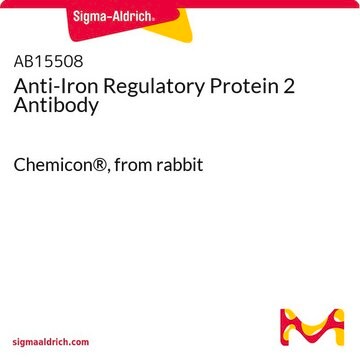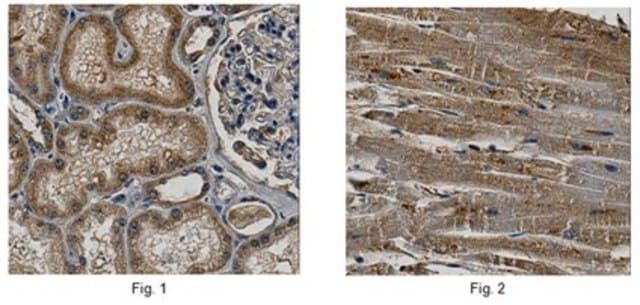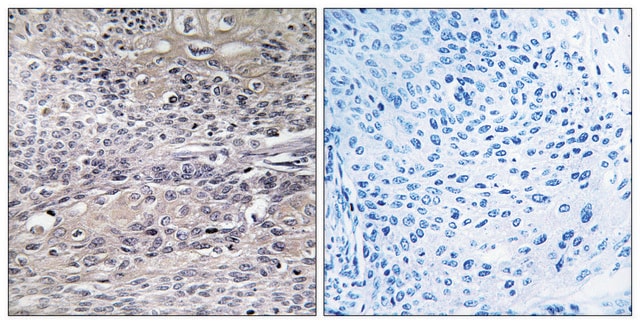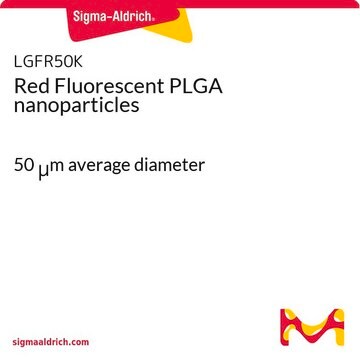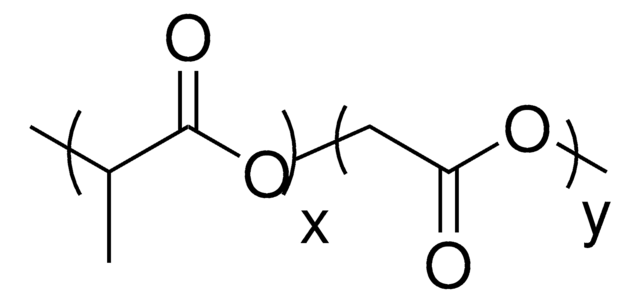MABS2030
Anti-IRP2 Antibody, clone 3B11
clone 3B11, from mouse
Sinónimos:
Iron-responsive element-binding protein 2, IRE-BP 2, Iron regulatory protein 2
About This Item
Productos recomendados
biological source
mouse
antibody form
purified immunoglobulin
antibody product type
primary antibodies
clone
3B11, monoclonal
species reactivity
mouse, human
packaging
antibody small pack of 25 μg
technique(s)
immunohistochemistry: suitable (paraffin)
immunoprecipitation (IP): suitable
western blot: suitable
isotype
IgGκ
NCBI accession no.
UniProt accession no.
target post-translational modification
unmodified
Gene Information
human ... IREB2(3658)
General description
Specificity
Immunogen
Application
Western Blotting Analysis: A representative lot detected IRP2 in Western Blotting applications (Yoshinaga, M., et. al. (2017). Cell Rep. 19(8):1614-1630).
Signaling
Quality
Immunohistochemistry (Paraffin) Analysis: A 1:50 dilution of this antibody detected IRP2 in human kidney tissue sections.
Target description
Physical form
Storage and Stability
Other Notes
Disclaimer
¿No encuentra el producto adecuado?
Pruebe nuestro Herramienta de selección de productos.
Certificados de análisis (COA)
Busque Certificados de análisis (COA) introduciendo el número de lote del producto. Los números de lote se encuentran en la etiqueta del producto después de las palabras «Lot» o «Batch»
¿Ya tiene este producto?
Encuentre la documentación para los productos que ha comprado recientemente en la Biblioteca de documentos.
Nuestro equipo de científicos tiene experiencia en todas las áreas de investigación: Ciencias de la vida, Ciencia de los materiales, Síntesis química, Cromatografía, Analítica y muchas otras.
Póngase en contacto con el Servicio técnico